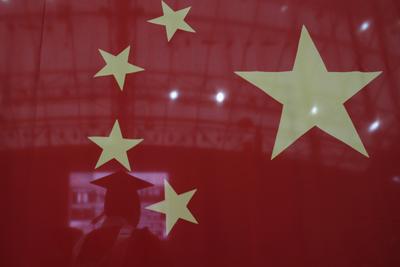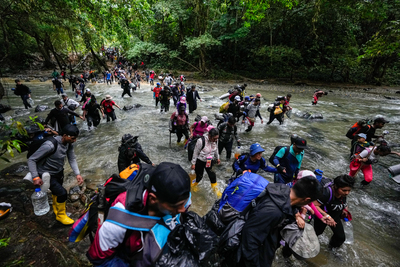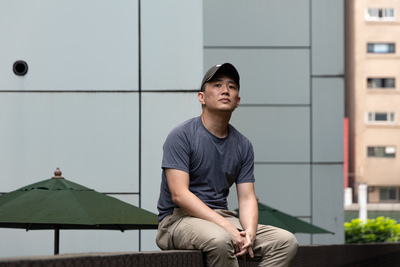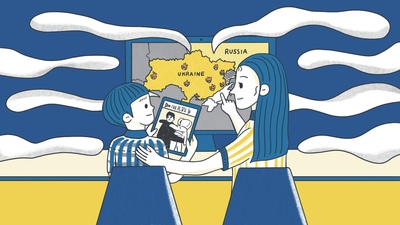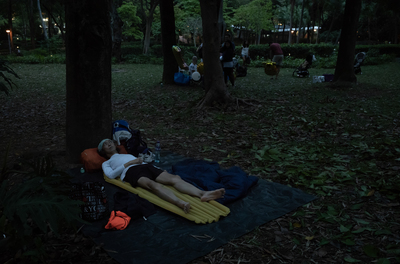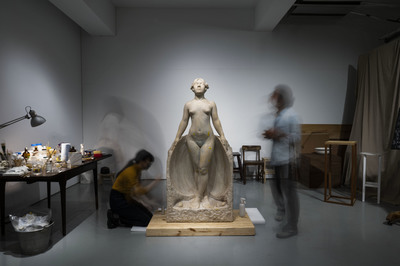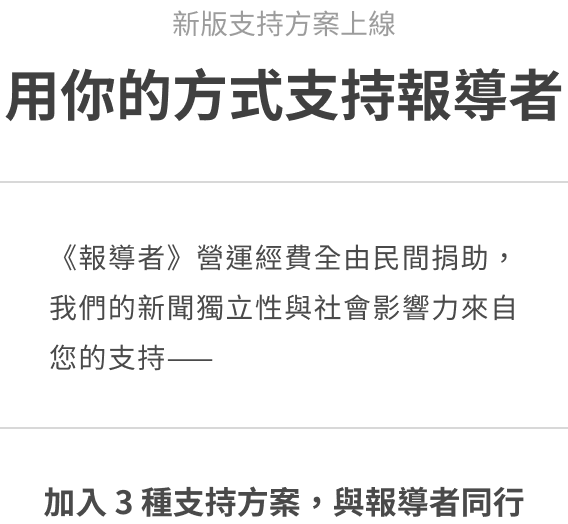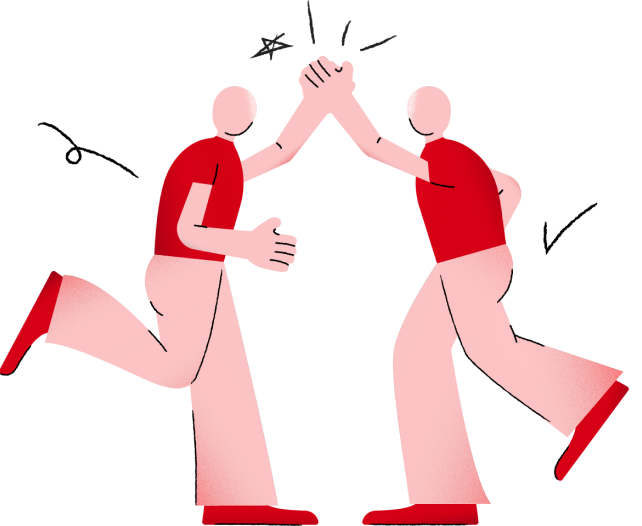Opinion
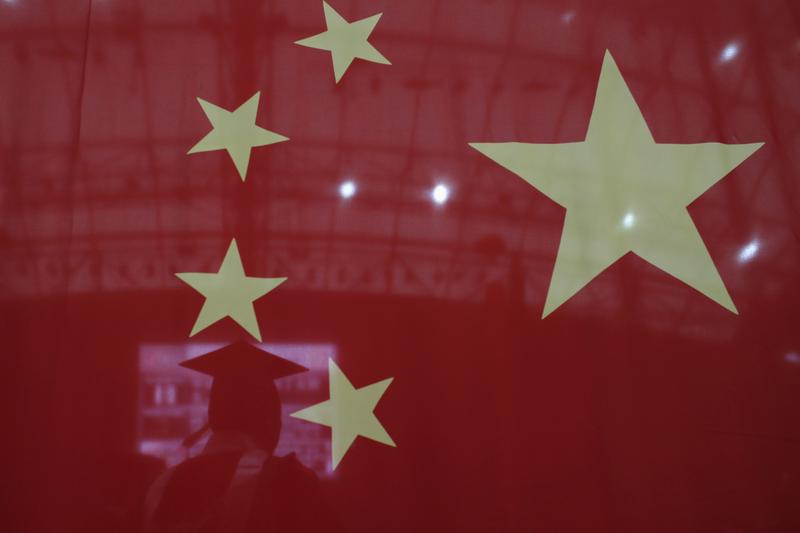
Pei is a Chinese student who formerly studied in Taiwan, and is currently pursuing a master's degree in Hong Kong. The author has used a pseudonym to protect his/her identity.
Moving from mainland China to Taiwan, and then Taiwan to Hong Kong, I never once intended to play a role in politics, nor did I ever expect to be rid of it. At no point was I ever conscious of how, bit by bit, politics had become so tightly interwoven in my life, nor how effortlessly I came to coexist with it.
When I arrived in Taiwan in 2015, it was Ma Ying-jeou’s (馬英九) final year in office. That year, the “Ma-Xi Meeting” garnered widespread attention, and the number Chinese nationals coming to Taiwan reached an all new high. But the post marital bliss between the mainland and Taiwan gradually faded. Following the turmoil of the Cross-Strait Service Trade Agreement (CSSTA) in 2014, the ideological differences over cultural and economic exchanges resurfaced. There were many reasons for Tsai Ing-wen (蔡英文) and the Democratic Progressive Party’s (DPP) landslide victory in 2016, but things were far less tense than they are now.
In 2015, Facebook users were more nervous and fearful of the Chinese Communist Party (CCP) than they were of the hotly debated Ma-Xi Meeting. Taiwan social media users poked fun at Ma Ying-jeou’s “death grip,” a popular meme that suggests people who shake hands with Ma experience a stroke of bad luck afterwards.
There weren’t as many internet celebrities involved in politics back then, and YouTubers and Facebook fan pages dedicated to local politics didn’t garner much attention or interest. It would be unusual to find anyone on my social media feed calling for others to vote, or calling on them to protect the freedom and democracy of Taiwan. Many more didn't care at all, and made no efforts to even exercise their own rights.
Four years on, when I open links about mainland China on Facebook, there is a heavy sense of “national doom” (亡國感) between the lines of commentary, and one is bombarded by constant squabbling and verbal abuse. It’s rare to see one side persuade the other. Political issues have become one of the most hotly debated topics; every editor knows a story about cross-strait relations is bound to strike a nerve with readers, and will get web traffic and spit flying. What happened in these past four years? What set this in motion?
On the eve of the 2016 election, the controversy surrounding K-Pop star Chou Tzu-yu’s (周子瑜) apology for brandishing an ROC flag provoked an online uproar in both mainland China and Taiwan. This was the first time I was caught in the middle of such a conflict. Weibo and Facebook were like their own separate worlds, each abuzz with polar opposite perspectives. For the first time I was made to feel what a formidable existence the wall truly was. Naturally there were Taiwanese friends of mine who were quick to ask for my opinion, but at the time I had only been in Taiwan for six months, and it was the first time I had been directly confronted by the rifts and conflicts dividing these groups. Consumed by fear and uncertainty, I was also forced to consider an education of patriotism in these regions for the first time. Is a person capable of representing a country? Should the intricacies of politics be the individual’s burden to bear? Back then, few profound political critiques had made their way onto online spaces in mainland China and Taiwan. It was more common to find the hostile flinging of meaningless insults.
What I didn't know then was that this conflict would be an ongoing presence for the next four years, spiraling out of control with no signs of stopping. As of now, melting that snowball seems to be a virtually impossible task. The speeches of the Golden Horse Film Festival, the panic caused by information warfare, and the anti-extradition movement protests in Hong Kong, with each controversy, discussion boards were overwhelmed with heated arguments. All manner of analyses, both in Taiwan and the mainland, would rise to popularity, and countless experts and internet celebrities generated seemingly endless streams of warnings and popular science articles. Why is it that people indifferent to mainland China have gradually come to adamantly oppose it? Perhaps to demonstrate that they are willing to put these feelings of opposition out in the open for all to see? Regardless of whether you supported Ma of the KMT, or Tsai of the DPP, or the most stubborn person from mainland China, it has reached the point where individuals now bear the brunt of these attacks.
In 2019, I left Taiwan for Hong Kong, believing that I was escaping the disputes among the ‘blue’ KMT supporters and the ‘green’ DPP supporters, and free from the bickering between Taiwan and the mainland. I never expected to get caught up in an even bigger political storm, but it was a truth I came to realise very quickly.
In any large anti-ELAB demonstration, the focus can simply shift or be lost, and tensions can easily flare up. The mood is so easily stirred up that it often moves from anti-CCP to anti-Chinese sentiment in the blink of an eye. We have no choice but to recognise that, outside of a political perspective, internet users of all regions have many things in common. They are all easily manipulated and provoked. From these user’s perspective, if one person can’t represent a single country, then likewise can that country or its people represent that person? Yet in Hong Kong, this situation of ‘being represented’ is becoming more and more common, and the source of even more hate and resentment. However, from the perspective of protesters, the enemy are not those working under the system of government, but more so the system itself, as it is the system that produced such people. How mainland Chinese people are ‘being represented’ is most harmful to mainland Chinese who are more neutral and wish to understand Hong Kong. At such a severe degree, this hinders impartial conversations, and causes the protesters to lose even more potential supporters.
At least Hong Kong and Taiwanese people still have a firm grasp on their freedom of speech, and it's not hard to find opportunities to understand the full story. As such we must both treasure and make the most of our own democratic rights and freedoms, instead of treating them as tools to broadcast hate and resentment, or abusing them to make others feel as though they are superior, as we are just people living our lives under one government or another.
I don’t want Taiwan to become another Hong Kong, nor do I want trends of people being assaulted by hatred and prejudice to take root in Taiwan. Both inside and outside of politics, the individual is always greater than the group, stereotypes should not be used to represent people, and the hateful words spread online should not seep through into everyday life. Perhaps this is a lesson that Hong Kong, Taiwan and the mainland should all learn.
In reality we all have the same goal. We all wish for a life of freedom and democracy, but this simply cannot be built upon a foundation steeped in hatred and prejudice from nationalism and populism.
(To read the Chinese version of this article, please click:【投書】從台灣到香港的陸生:關於「代表」和「被代表」 )
用行動支持報導者
獨立的精神,是自由思想的條件。獨立的媒體,才能守護公共領域,讓自由的討論和真相浮現。
在艱困的媒體環境,《報導者》堅持以非營利組織的模式投入公共領域的調查與深度報導。我們透過讀者的贊助支持來營運,不仰賴商業廣告置入,在獨立自主的前提下,穿梭在各項重要公共議題中。
你的支持能幫助《報導者》持續追蹤國內外新聞事件的真相,邀請你加入 3 種支持方案,和我們一起推動這場媒體小革命。

